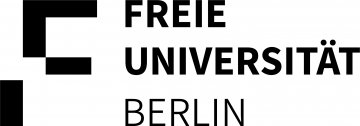Freie Universität Berlin
Research at Freie Universität Berlin is characterized by the diversity of the academic networks the university maintains as well as by interdisciplinary fields of research that establish research foci and set future research trends. The main features of Freie Universität’s research activities include the broad variety of global academic and scientific cooperation arrangements in place as part of alliance projects and interdisciplinary networks with other entities active in research. The goal is to identify social, economic, and cultural trends on a global scale and to develop relevant fields of research.
Freie Universität Berlin works continuously to expand and strengthen its national, international, and interdisciplinary research networks. The university promotes the transfer of knowledge and offers junior scholars an outstanding level of education. The excellent quality of research at Freie Universität Berlin is confirmed by the high positions it achieves in university rankings. The importance of the university’s research achievements is reflected in its steady increase in external funding in the past years and in the many prestigious research awards received by scholars of Freie Universität Berlin.
Role within PASQuanS 2
The work group of Prof. Dr. Jens Eisert is dedicated to conducting theoretical research on quantum simulation and computation. Within PASQuanS2.1, the group will provide a wide range of research activities supporting research on programmable quantum simulators. We bring in substantial expertise in devising schemes for quantum simulation and have a strong track record of collaboration with experimentalists. At the same time, we have expertise in developing verification techniques, tensor network benchmarks, new quantum simulation methods, and in assessing the computational complexity of a given simulation tasks. We will devise innovative schemes for quantum simulation to enhance the programmability of the platforms. It will develop verification techniques, tensor network benchmarks, and assess the computational complexity of given simulation tasks.


